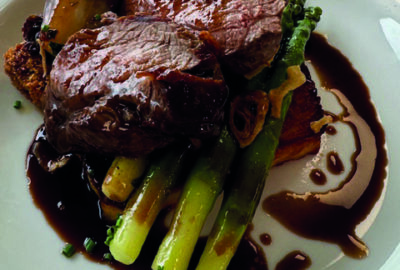Why mobile caterers must ensure they comply with UK food safety regulations By Justine Wadge, principal environmental health consultant at Lloyd’s Register
POPULARITY OF POP-UP DINING
As the name suggests, pop-up restaurants provide a temporary food
service, hosting in temporary locations throughout the year. This style
of hospitality provides caterers with a testing ground to experiment with
recipes and menus to match market trends and see what people really
think. Operating in this way has become exceedingly popular amongst
foodservice professionals due to the significant savings in overheads
compared to traditional restaurants.
In recent years customers have often sought alternatives to regular
eateries and, as a result, dining preferences have evolved. As pop-up
restaurants only staying in one place for a temporary period, there is an
elevated sense of urgency as the cuisine is limited which arguably makes
it more enticing to consumers.
Playing by the rules
There is a misconception that the transient and temporary nature of pop-up restaurants means that they aren’t governed by the same regulations as permanent fixtures, such as the Food Safety and Hygiene (England) Regulations 2013, Food Hygiene (Scotland, Northern Ireland or Wales) Regulations 2006 or the Regulation (EC) 852/2004. This is a fundamental misunderstanding of the food regulatory regime in the UK and shortcuts cannot be taken when it comes to compliance with UK food safety regulations.
Non-static caterers must ensure they comply with food safety regulations and register with local councils before trading. Even if a vendor is only in one location for a few days, temporary food businesses must still register with the local council, specifically the environmental health inspectors. However, over-stretched council resources are potentially creating holes in the system.
Local councils don’t always have the necessary resources to deal with the pop-up restaurant explosion, particularly when some vendors may only be on site for one or two days. If there are not enough local environmental health inspectors, this could cause the unaware to unwittingly carry out practices that could lead to a food contamination and encourage the unscrupulous to try and cut corners. The boom in pop-up restaurants has taken many forms, from market stalls to food trucks and vacant shop units, and self-policing is inevitably going to form a large part of the regulatory solution. It is the responsibility of the pop-up to ensure that they are doing things properly to alleviate any consumer concerns. In times where mislabelling cases and undisclosed allergens are causing concerns, the old safety net of council inspections is no longer there and that leaves vendors more and more exposed.


